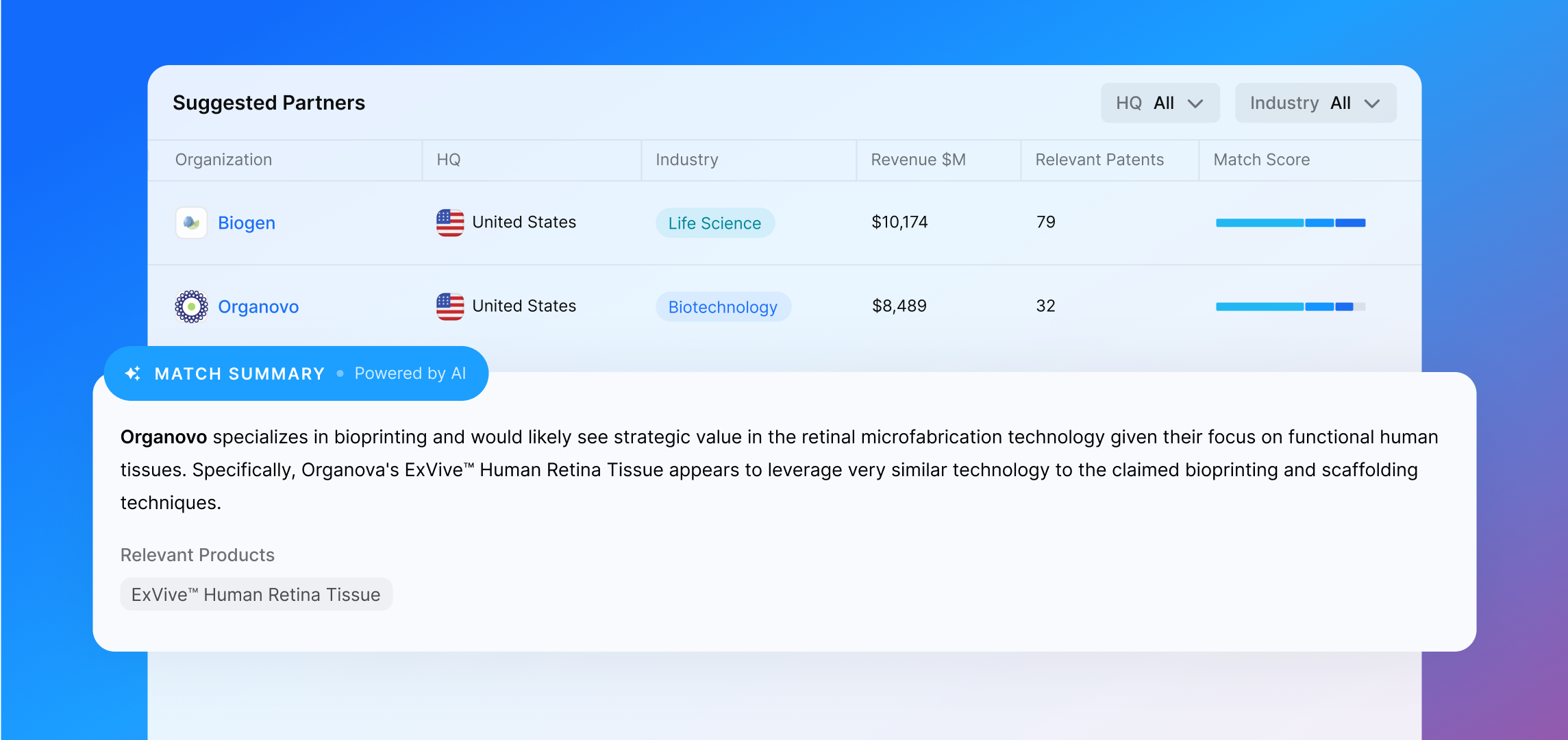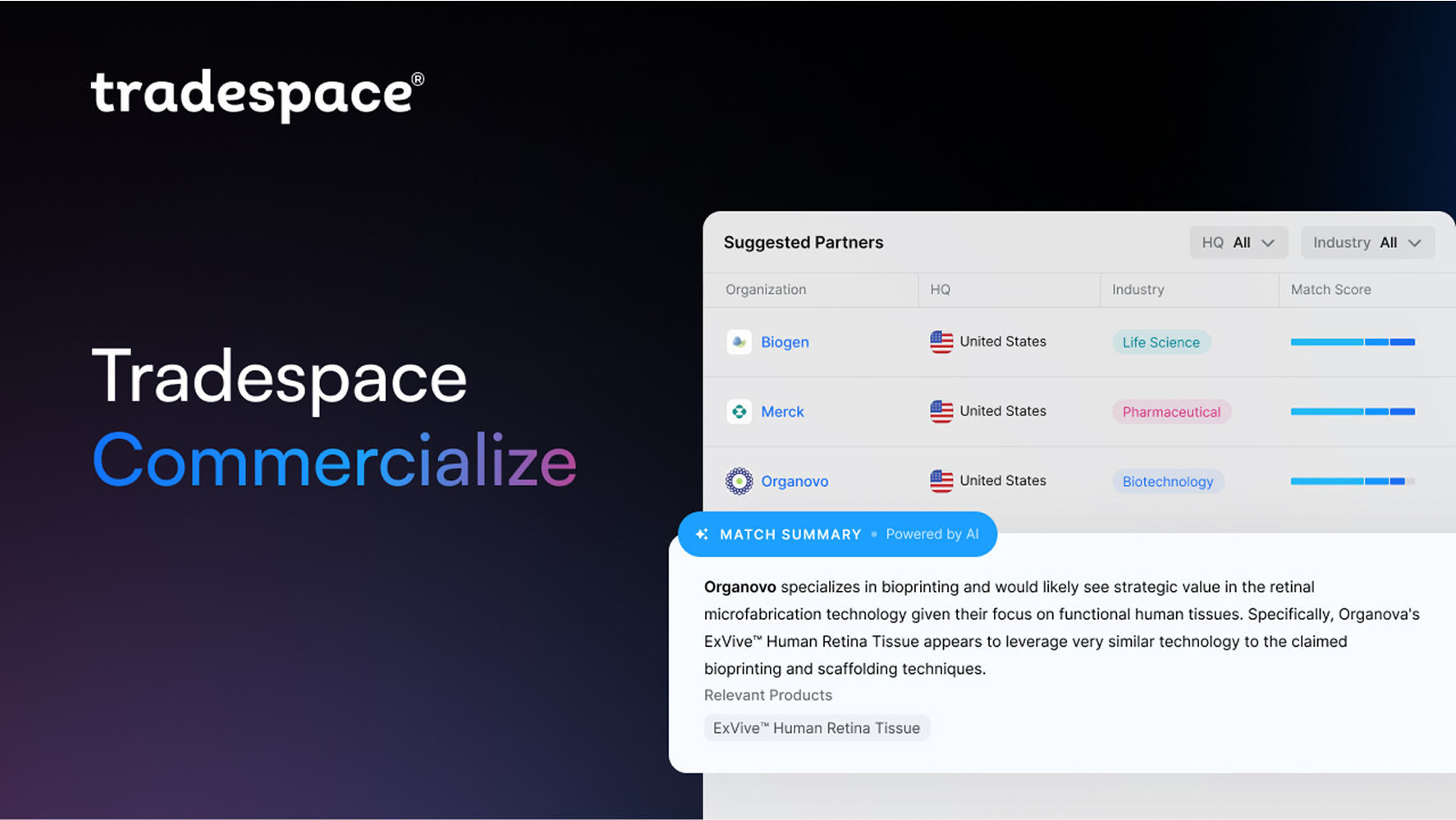Take your IP commercialization strategy to the next level
How AI for IP commercialization lets you identify, increase, and close more opportunities

Most IP teams lack the time and resources to commercialize their portfolios effectively. Teams with existing IP commercialization strategies often face years of backlogs from manual processes and resource constraints. AI is changing this equation by making IP commercialization strategies more efficient for established teams while making licensing and monetization accessible for teams that previously found it unattainable.
The challenge of building an IP commercialization strategy
Identifying available IP assets and market opportunities
Identifying available IP assets and market opportunities
Every effective IP commercialization strategy begins with identifying which patents are available for licensing. While mature companies typically own unused IP, determining which assets are truly underutilized requires extensive analysis. Without proper documentation systems, IP portfolios often become misaligned with business realities, making it impossible to confidently identify licensable assets.
Even after identifying available patents, developing an IP commercialization strategy requires understanding potential buyers and their needs. This challenge intensifies because unused IP is often most valuable for applications the owner cannot easily envision. Companies that limit their commercialization strategies to familiar industries frequently miss significant revenue opportunities in unexpected markets.

How AI transforms IP asset management
How AI transforms IP asset management
AI automatically creates and maintains accurate IP-to-product mappings, categorizing portfolios by technology and flagging assets that no longer align with active products. This automated analysis identifies potential licensing opportunities in markets outside the company’s core focus, providing the foundation needed for confident IP commercialization strategies.
By continuously analyzing portfolio alignment with business objectives, AI ensures that commercialization strategies are built on current, accurate data rather than outdated assumptions. This intelligence enables teams to pursue licensing opportunities they would never have discovered through manual analysis.










